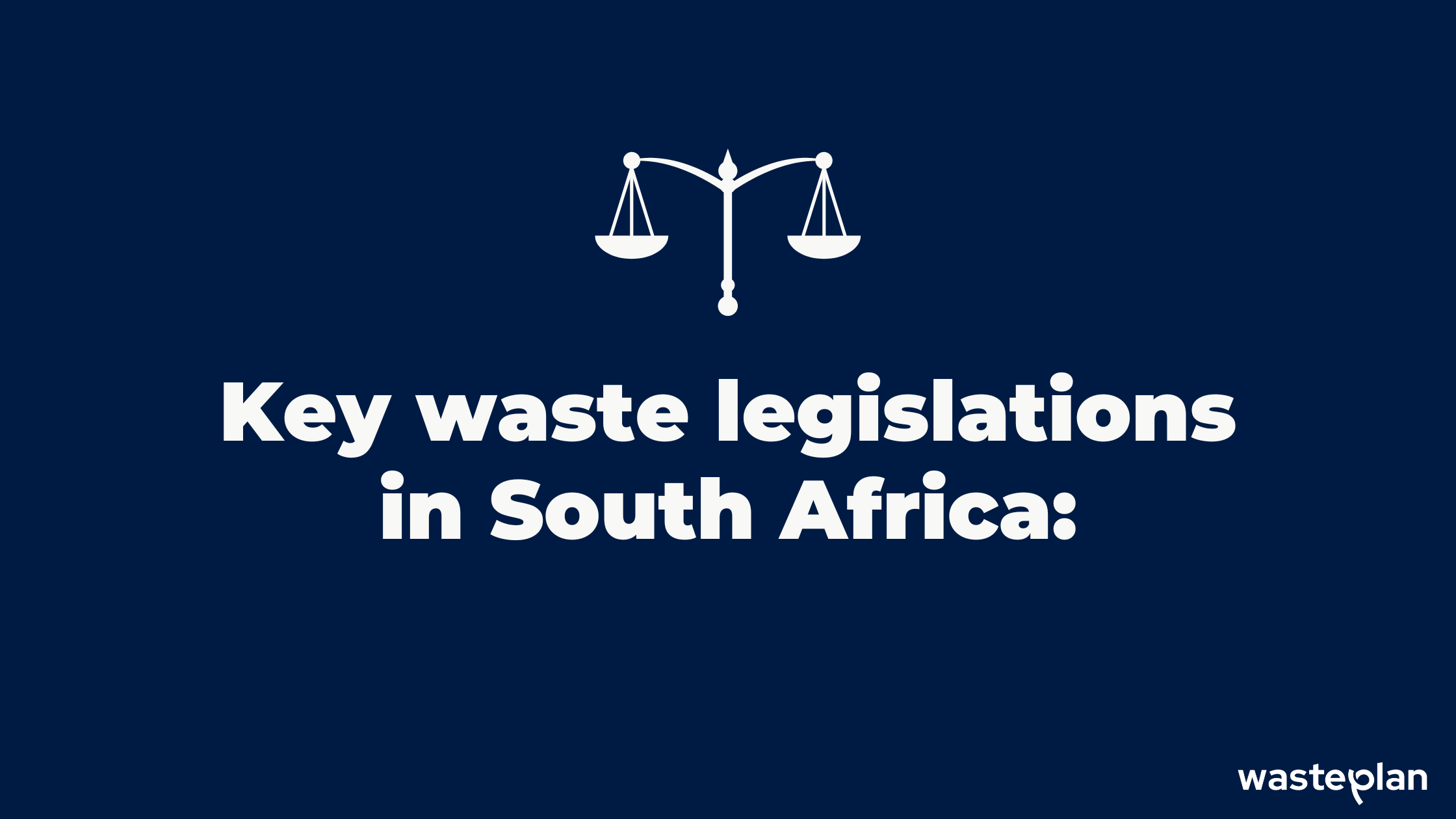Concepts like innovation and environmental sustainability are no longer boardroom buzzwords, but pillar priorities to navigate the complexities of 21st century business. What was considered blue sky thinking a decade ago, is now an on-the-ground reality. You simply can’t do business any other way than to aim for green – your clients, your pocket and hopefully, your conscience, won’t allow it. But neither will the legislation that holds your business in check.
There are a host of environmental regulations and laws in South Africa that impact your business today, but we’re narrowing them down to a handful of ‘umbrella’ legislations. Obviously the list is not comprehensive. But here is rather a broad overview of the SA legislative landscape: which laws affect your operations, how they work, and more importantly, why they matter to your business.
Key Legislations in South Africa:
-
Carbon tax
The why: In the 2015 Paris Agreement, SA committed with 196 countries to combat climate change (specifically to stave off the rise of global average temperatures by 2°C above pre-industrial levels, and hold the line at a maximum 1.5°C increase).
The what: The tax will be rolled out in phases, although phase 1 implementation is currently delayed due to Covid-19. It will up your tax vulnerability extensively. But on the flip side, it could incentivise a greener, better way of business.
The how: You’ll be taxed at R120 per tonne of CO2e (carbon dioxide equivalent), with an effective tax rate ranging between R6-R48.
Wanna know more? Download our Carbon Tax e-Book here.
-
NEM (National Environmental Management) Waste Act
The why: Regulating all aspects of waste management through protecting human health and well being and the environment by avoiding, reducing, reusing, recycling and recovery of waste, including ecologically sustainable development.
The what: This act is the most important piece of environmental legislation in our country as it covers the entire strategy for regulation and control. The Waste Act sets the national norms and standards for regulating the management of waste across SA, which includes licensing, compliance and enforcement.
The how: The Waste Act determines the parameters for the management of your business, and provides a slew of punitive measures for pollution.
Wanna know more? Check this out.
-
NEM (National Environmental Management) Air Quality Act
The why: Ongoing access to air quality is a fundamental human right, and must be protected for the health, safety and prosperity of all South African citizens.
The what: The law defines the national norms and standards regulating air quality monitoring, and works to provide reasonable measures for the management of pollution and promotion of sustainable skies.
The how: The Air Quality Act determines the parameters for your business’s impact assessment, sets licensing conditions, and offers a slew of punitive measures for pollution.
Wanna know more? Check this out.
-
SA Plastics Pact
The why: Plastic waste is the silent but deadly epidemic of our times. Only 1-3% of all plastics are recycled, with a natural capital cost to our global economy at US$8 billion per year. The use of plastics is still growing at a rate of 4% per annum. It’s time to rethink the plastics economy.
The what: SA Plastics Pact is part of a worldwide initiative that brings together businesses, governments, and NGOs at the national or regional level to work towards a circular economy for plastic, in which it never becomes waste or pollution.
The how: SA business commit by 2025 to:
- 100% of plastic packaging *can be* reusable, recyclable or compostable
- 70% of plastic packaging effectively recycled
- 30% average recycled content across all plastic packaging.
The “not so nice” implications
Legislation is constantly under review and subject to change. It’s difficult to know if your business is staying up to scratch with the latest protocols and norms. What’s more, these laws mainly operate as punitive measures. That is, they come with a whole lot of penalties and additional tax negatively affects your bottom line when the business fails to comply. It’s best you get an expert involved who can help you understand and adhere to the latest regulations. Contact us so we can help you.
The awesome opportunities
The upside to all these punitive pitfalls is that businesses become motivated to innovate and minimise their carbon generation. The fact that poor waste habits come with a measurable price tag means that better habits, like recycling, are hopefully being incentivised. Zero waste to landfill is more than a trending aspiration; it’s a viable and profitable target for any business model. Recycling and repurposing your waste translates into savings: you minimise your costs, while actually making money from your current waste streams while assisting with your waste management.
It’s actually quite simple. The less you waste, the less you pay. The more you innovate, the more you earn. It’s doable, and we can show you how. Contact us to begin the journey to building a sustainable SA business.
Download the Carbon Tax e-Book.





